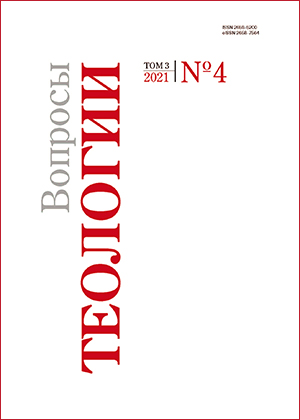Sacred history of the Old Testament biblical state: Religious and political context
DOI:
https://doi.org/10.21638/spbu28.2021.405Abstract
The article is devoted to the consideration of the place and role of the political factor as an instrument of Divine Providence, realized in the Sacred history of the biblical state. The exodus from Egypt became a manifestation of the supernatural political power of God. The Decalogue was not only a religious and ethical code, but also the actual constitution of the Hebrew state. Fulfillment of the Ten Commandments, brought down by Moses, and obedience to God went beyond the scope of religious duty, being a means of realizing national identity and citizenship. The establishment of the institution of the kingdom in Israel was the development of the idea of a theocracy, in which the monarch was assigned the sacred function of an intermediary between God and the people, and the keeper of Divine laws. The disintegration of the statehood of Israel in the prophetic writings was closely associated with the fall of the entire people and the breakdown of the union with God. Its revival was expected as a result of repentance. The destruction of the temple, the loss of shrines and the fall of the monarchy were perceived as a coherent phenomenon. At the same time, the hope for political liberation of the people and the restoration of the union with God were closely linked with the reconstruction of the monarchy, which acquired a religious and messianic significance. The opposition of the Pharisees to Christ and the death sentence to the Savior had a pronounced political implication.
Keywords:
theocracy, Israel, state, politics, monarchy, power, religion, Christ
Downloads
References
References
Downloads
Published
Issue
Section
License
Articles of "Issues of Theology" are open access distributed under the terms of the License Agreement with Saint Petersburg State University, which permits to the authors unrestricted distribution and self-archiving free of charge.




